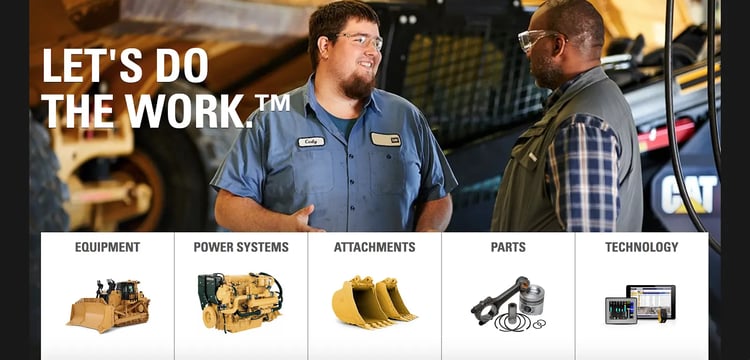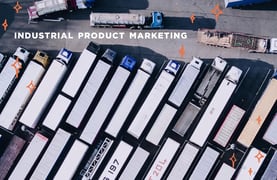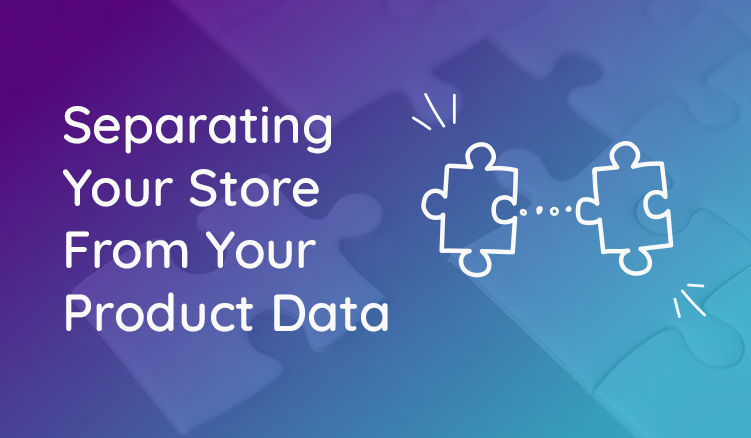Every company that has something to sell needs to put careful consideration into its marketing efforts.
It doesn’t matter what you’re selling. Be it gourmet dog food, custom jewelry, or industrial equipment for consumers and businesses, marketing efforts are equally important and have the same goal: To get your company’s name, message, and products in front of the people who need your products.
Simple, right? With the right tools, yes.
Industrial product marketing isn’t all that different from marketing other kinds of products. You still want to design effective marketing campaigns, make sure they reach the right people, and get the sales and revenue results you’re looking for.
Not sure where to start? There are plenty of strategies and tools your company can use to nail its industrial product marketing and meet its growth and revenue goals. We’ll get into those in a minute, but first, let’s look at why industrial product management is so important.
What Are the Objectives of Industrial Marketing?
There are a few important marketing objectives your company can achieve with the right approach and strategy:
- Diversify and widen your client base. Manufacturers and industrial companies once relied on trade publications and shows to reach their target audience. Now that so much of marketing and sales happens online, there’s an opportunity for industrial product sellers to reach more people through targeted ad campaigns and their online presence.
- Decrease your overhead. If you’ve been spending money on general marketing campaigns, you can get better results for a smaller investment by targeting your efforts and making the shift to digital marketing, which generally has a higher ROI than traditional forms of marketing.
- Raise your credibility and brand recognition. In 2019, most, if not all, of your customers are online. Having an active online business presence will help build your image and foster trust with followers who might become your newest customers.
But knowing why you should focus your efforts on digital marketing is just the first step. You also need to know how to effectively market your business in the digital age.
Strategies for Manufacturing Companies to Drive Business Growth
While industrial product marketing likely seems daunting if you’re new to the idea, it’s not as complex as it may first appear. There’s already been a lot of research and trial and error that have gone into finding the industry’s best practices that your business can now take advantage of. Let’s take a look at some of the strategies you may want to consider.
Build a Great Website

Your website is one of the most powerful tools you have to build your brand and generate leads. Investing in good website development is crucial, and you should be incorporating:
- Clean, modern web design that fits your brand guidelines
- An ecommerce storefront that makes direct-to-consumer shopping easy
- Lead generation strategies, like white papers, an email newsletter, or free consultations
- Calls to actions (CTAs) that use good content to prompt visitors to make a purchase, sign up for your email list, or read more information
Use Content to Drive Traffic
A great way to help potential customers discover your products is by creating content that’s useful to the people who have a need for what you sell. For example, if you sell industrial farming equipment, an informational article comparing different machinery that does the same job might help customers discover which piece of equipment is best for their needs — and lead them to purchase that equipment from your site.
Experiment With Digital Advertising
The biggest benefit of digital advertising is that you can create targeted campaigns that advertise to highly specific demographics of people, which means you focus your efforts on the people most likely to become your customers.
Digital advertising takes a lot of different forms. Some to try out include:
- Pay-per-Click (PPC) ads: Text-based ads that display at the top of search results, giving potential customers a link and a description. This is a budget-friendly option, since you only pay if someone clicks your ad.
- Social media ads: Advertising on Facebook, Instagram, and Twitter allows sellers to reach tons of people, but still target their campaigns to focus on reaching certain demographics of users.
- Display ads and banner ads: Image-based ads that display on websites and link to your store or website. These tend to be a little more expensive than text-based ads, but can make a lasting impression because of their visual nature.
Invest in Video Production
Video is one of the most popular types on content on the internet. Industrial industries are particularly well suited to video because they tend to have fascinating visual elements that people are interested in seeing. Think about shows like Modern Marvels and How It’s Made. People love that sort of content, so why not create some about your industrial products?
The downside to video is that it tends to be time-consuming and expensive compared to other forms of digital marketing. If you’re brand new to video, partnering with an agency or channel that already has a viewer base might be a more cost-effective way to get started.
Curate an Email List

Email marketing is one of the most successful ways you can convert your target audience into sales, with a potential ROI of 4400 percent. Start by incorporating email sign-up forms on your website — put them in headers, footers, pop-ups, and content. As you organically build an email list, start sending email newsletters, links to relevant content, promotions and deals, and other emails that fit your marketing goals.
Embracing the Digital Transformation in the Industrial Products Market
You may have noticed a theme to all these strategies: They’re all digital.
Industrial products and manufacturing have traditionally been very hands-on fields, which means the digital transformation has been a little slower to take hold than in other industries. That presents a great opportunity for your company to get ahead of the competition by embracing digital strategies.
There are some digital trends in manufacturing and industrial fields that you’ve probably already heard about, if not experienced: Robotics, internet of things, smart factories, and 3-D printing, just to name a few. But let’s talk about some digital trends that go hand-in-hand with your marketing efforts: Big data and omnichannel.
As ecommerce sales continue to account for more and more of total sales, new strategies are necessary.
It’s now the norm to market and sell across multiple channels, from your own ecommerce site to affiliate sites and social media. And marketing and selling products online requires a lot of data, from SKUs and product descriptions to materials, dimensions, shipping information, prices, taxes, and more. It’s not uncommon for ecommerce retailers to have thousands of digital assets to keep track of. Marketing and selling in the digital age requires a strategy to centralize, organize, distribute, and analyze all those product data points.
That’s why manufacturers and industrial product sellers need Product Information Management (PIM). PIM software can help industrial equipment brands double their sales by reducing time spent updating online sales channels (by 70% for Caterpillar, Inc.) and getting products to market in multiple channels up to six times faster.
It may be a big change, but taking your industrial product marketing efforts digital can pay off in a huge way. Get new customers and drive more sales by effectively marketing your products online, with these strategies.




